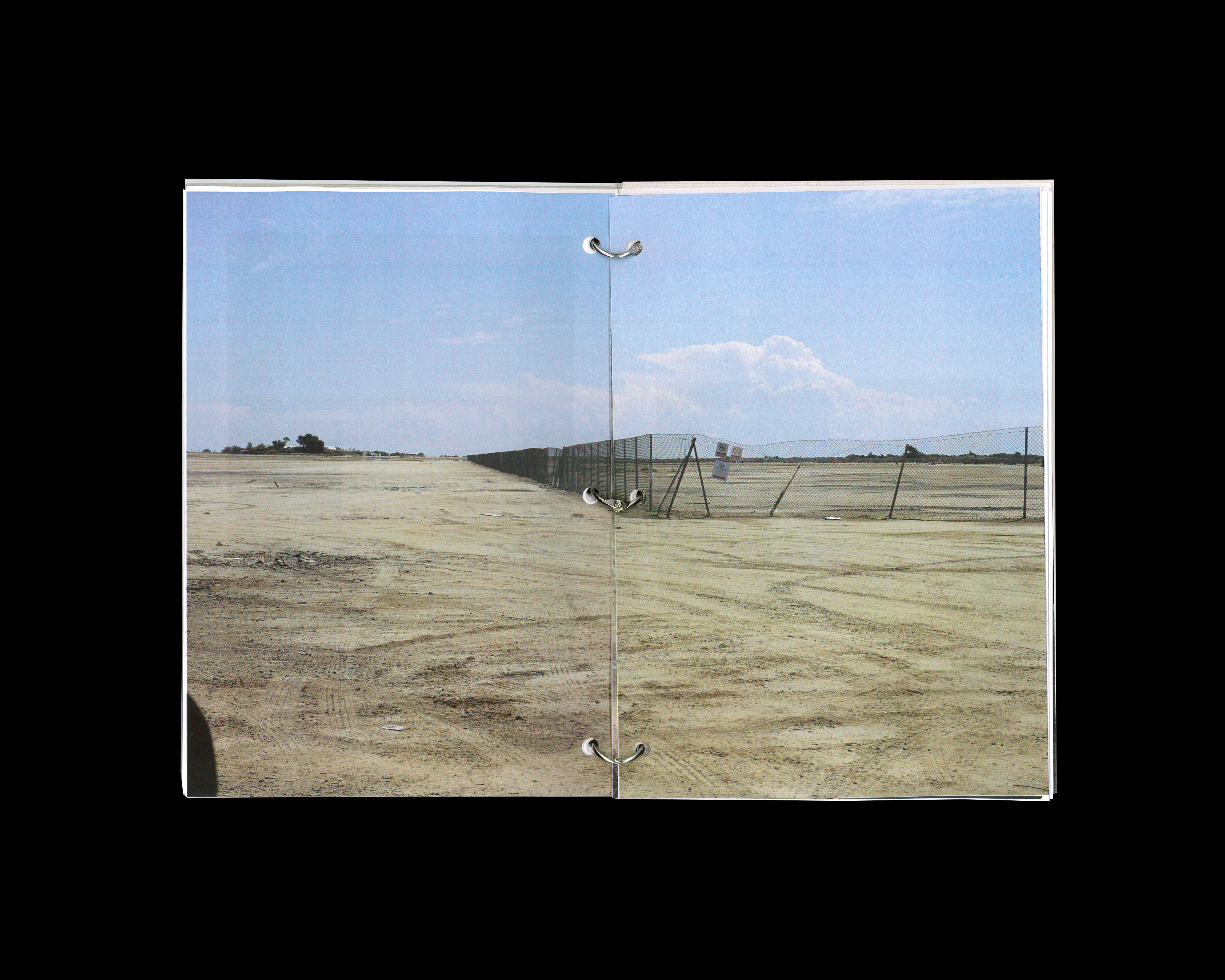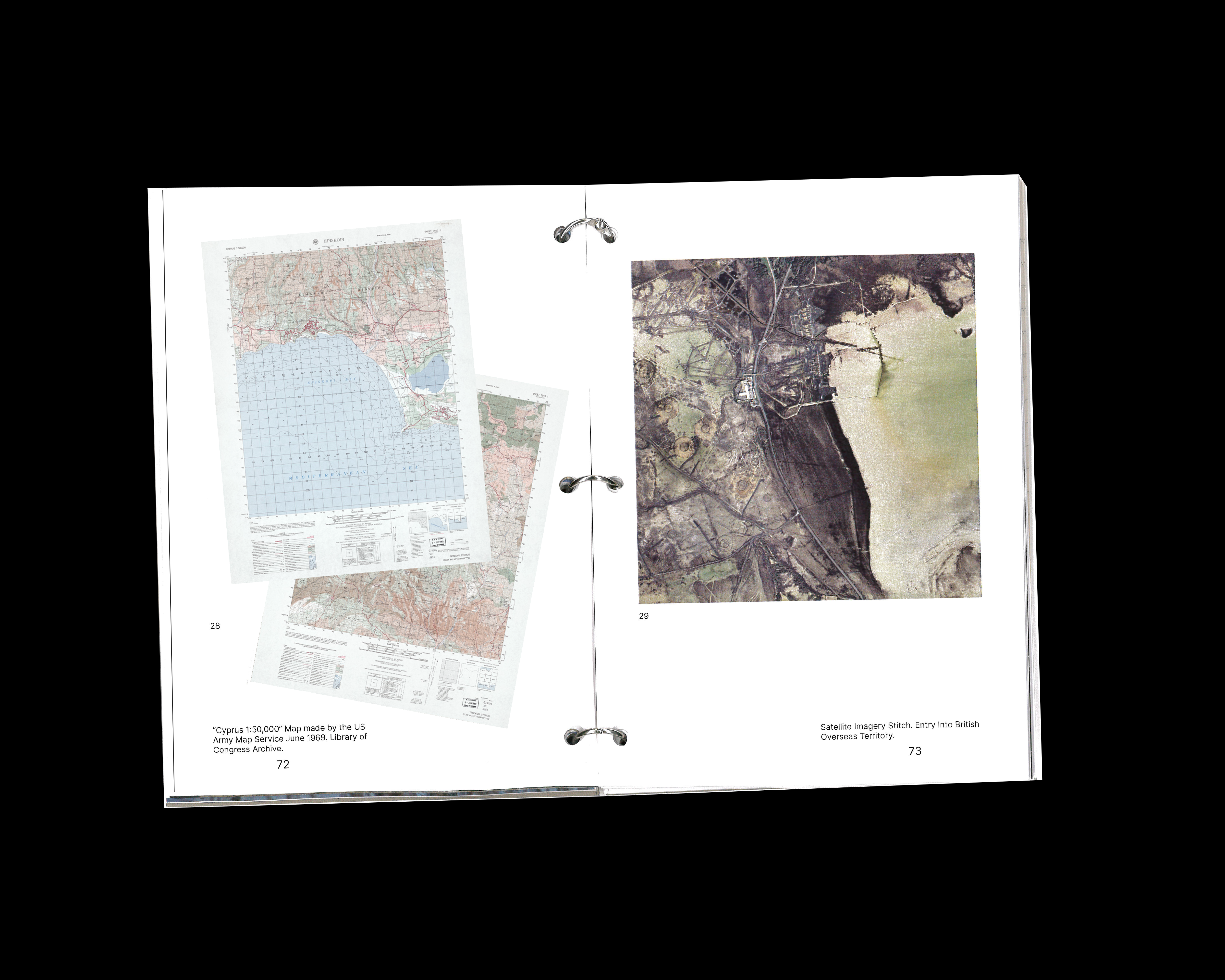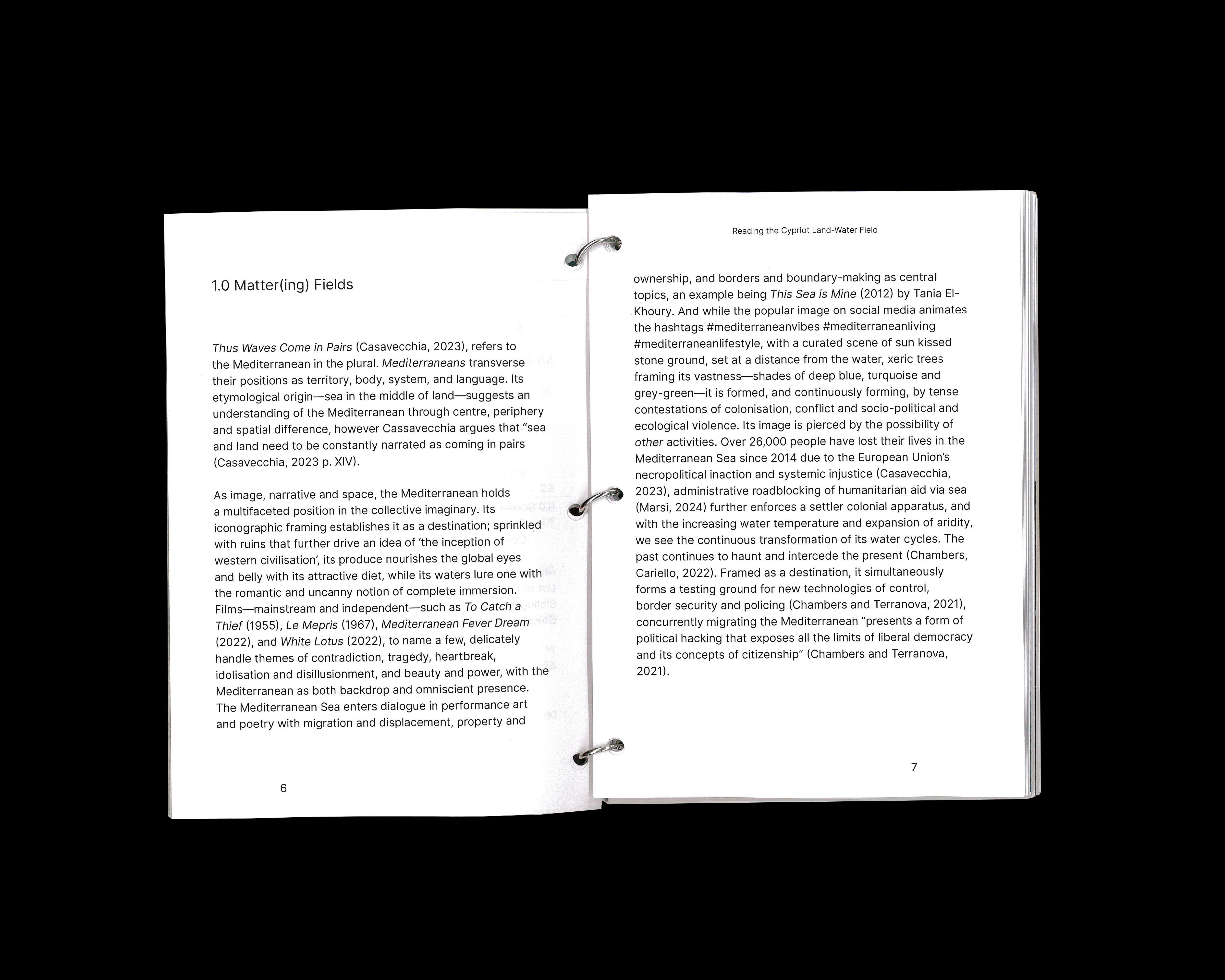Space, Performance, Difference:
Reading the Cypriot Land-Water Field (2024).
This field guide looks to tune the apparatus of architectural research methods and practice to larger, more complex systems at work, and in contexts that do not fall within categories of standard. Here, we question how we engage with the field—both material and discursive—and situate ourselves within feminist, architectural, ecological and artistic scholarship. My aim is threefold: cross spatial, artistic, technological and ecological fields; unfold the spatial, material, and discursive practices that shape the current Cypriot land-water field; and contribute with critical methods of engaging with land-water fields as architectures.
Feminist discourse challenges traditional notions of the research subject/object, and that of the relative or reflexive research approach. It redefines subjectivity as a dynamic becoming, moving beyond the representational constructions of space as mere container within which bodies exist. Disciplinary boundaries are constantly questioned, along with the distinction between theory and practice.
When approaching a complex field—that is informed/formed/informing/forming by/with multiple other fields—one might desire a guide that aids in the process of navigating and revealing. Here however, boundaries are created and broken, the unreliable guide helps with the muddying of water, in the murky shallows of the swash we might lose understanding of what is water and what is land, and in that find new definitions and directions.
Reading the Cypriot Land-Water Field (2024).
This field guide looks to tune the apparatus of architectural research methods and practice to larger, more complex systems at work, and in contexts that do not fall within categories of standard. Here, we question how we engage with the field—both material and discursive—and situate ourselves within feminist, architectural, ecological and artistic scholarship. My aim is threefold: cross spatial, artistic, technological and ecological fields; unfold the spatial, material, and discursive practices that shape the current Cypriot land-water field; and contribute with critical methods of engaging with land-water fields as architectures.
Feminist discourse challenges traditional notions of the research subject/object, and that of the relative or reflexive research approach. It redefines subjectivity as a dynamic becoming, moving beyond the representational constructions of space as mere container within which bodies exist. Disciplinary boundaries are constantly questioned, along with the distinction between theory and practice.
From early on the nature-culture dichotomy has been challenged vigorously on multiple grounds by feminist, poststructuralist, postcolonialist, queer, and other critical social theorists, and that attending to the issues they raise is an integral part of questioning the constitution of the nature-culture dichotomy and the work it does: not only that it matters, but how it matters and for whom. (Barad, 2007, p. 87).
When approaching a complex field—that is informed/formed/informing/forming by/with multiple other fields—one might desire a guide that aids in the process of navigating and revealing. Here however, boundaries are created and broken, the unreliable guide helps with the muddying of water, in the murky shallows of the swash we might lose understanding of what is water and what is land, and in that find new definitions and directions.





